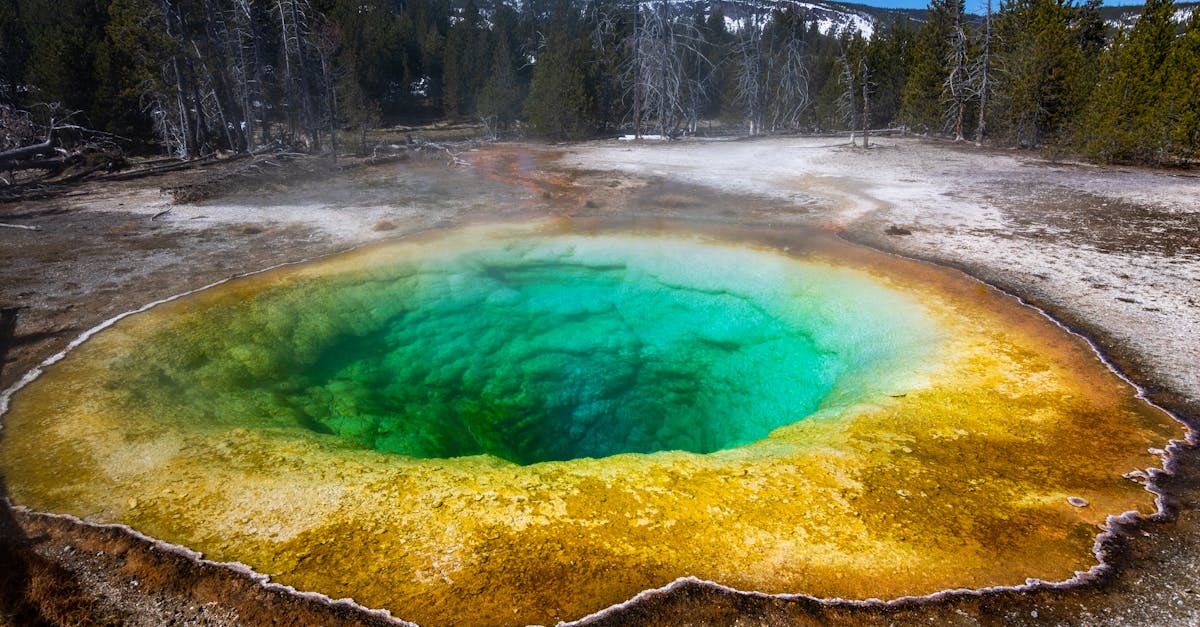
Table Of Contents
Comparing Heat Pump Hot Water Systems to Traditional Options
When considering a Hot Water System Replacement, one of the key decisions homeowners face is choosing between a heat pump hot water system and traditional options like electric or gas systems. Heat pump hot water systems are known for their energy efficiency, utilizing ambient air temperature to heat water with significantly less electricity consumption compared to traditional systems. This can result in lower energy bills over time, making heat pumps a cost-effective choice for many households.
In contrast, traditional hot water systems rely solely on electricity or gas to heat water, often leading to higher energy costs. While these systems may have lower upfront costs compared to heat pumps, the long-term savings potential of heat pump hot water systems should not be overlooked. Additionally, heat pump systems typically have longer lifespans and require less maintenance, providing homeowners with added peace of mind and reduced hassle in the long run.
Performance and LongTerm Savings
When considering the performance and long-term savings of heat pump hot water systems, it is important to assess the impact on energy consumption and utility costs. Heat pump hot water systems have shown to be significantly more energy-efficient compared to traditional options, resulting in lower ongoing expenses. In the context of a Hot Water System Replacement, opting for a heat pump can lead to considerable savings over time due to reduced energy usage and operational costs.
Additionally, the longevity of heat pump hot water systems plays a key role in their cost-effectiveness. With proper maintenance and upkeep, these systems can outlast traditional water heaters, translating to potential savings on replacements and repairs in the long run. When weighing the initial investment against the extended lifespan and reduced running costs of a heat pump hot water system, the proposition for long-term savings becomes increasingly evident.
Environmental Impact of Heat Pump Hot Water Systems
Heat pump hot water systems have gained popularity in Australia due to their significant environmental benefits. When compared to traditional water heating options such as electric or gas systems, heat pumps offer reduced energy consumption and subsequently lower greenhouse gas emissions. This is a crucial aspect in the current global climate crisis, making heat pump hot water systems a more sustainable choice for households looking to reduce their carbon footprint.
One of the key environmental advantages of choosing a heat pump hot water system is their ability to utilise renewable energy sources. By extracting heat from the air or ground, these systems can heat water efficiently without relying solely on fossil fuels. This not only decreases reliance on non-renewable resources but also contributes to a cleaner and greener energy mix in the country. In the context of Hot Water System Replacement, opting for a heat pump system can be a proactive step towards reducing environmental impact and promoting sustainability in residential energy consumption.
Reduced Carbon Footprint
Reduced Carbon Footprint
When considering the environmental impact of home appliances, hot water systems play a significant role in households. Through the incorporation of heat pump technology, homeowners can drastically reduce their carbon footprint. The energy efficiency of heat pump hot water systems contributes to lower greenhouse gas emissions, making them a sustainable choice for environmentally conscious individuals. The reduction in electricity consumption as a result of using a heat pump can help decrease overall carbon emissions associated with water heating, thus positively influencing the sustainability profile of households.
In the context of hot water system replacement, opting for a heat pump system offers a practical solution to reduce environmental harm. The reduced reliance on traditional heating methods powered by fossil fuels means lower carbon dioxide emissions, aligning with global efforts to mitigate climate change. By embracing heat pump technology, homeowners can actively contribute to a greener future while benefitting from energy savings in the long run.
Government Incentives and Rebates for Heat Pump Hot Water Systems
When considering the financial aspects of transitioning to a heat pump hot water system, it is crucial to explore the various government incentives and rebates available in Australia. The government offers incentives to promote the adoption of energy-efficient solutions such as heat pump hot water systems, aiming to reduce overall energy consumption and environmental impact. These incentives can significantly offset the initial costs of installation, making the transition to a more sustainable hot water system more accessible to homeowners and businesses alike. By taking advantage of these incentives, individuals can not only contribute to environmental conservation but also enjoy long-term savings on their energy bills.
One of the key incentives for heat pump hot water systems in Australia is the financial assistance provided for Hot Water System Replacement projects. This assistance targets the replacement of older, less energy-efficient hot water systems with modern, eco-friendly alternatives like heat pumps. By offering rebates and subsidies for such replacements, the government encourages consumers to make sustainable choices that benefit both their finances and the environment. These initiatives align with the country's commitment to reducing carbon emissions and promoting energy efficiency, providing tangible support for those looking to upgrade their hot water systems.
Financial Assistance Options
When considering the financial aspects of installing a heat pump hot water system, it's essential to explore the various financial assistance options available. In Australia, homeowners looking to upgrade their water heating systems to more energy-efficient options such as heat pump hot water can benefit from government rebates and incentives. These financial support schemes aim to encourage the adoption of eco-friendly technologies and help make the initial investment more affordable for consumers. One of the primary ways to reduce the cost of a Hot Water System Replacement is by taking advantage of these incentive programs.
In addition to government incentives, there are also financial assistance options offered by utility companies and other organisations to support the adoption of heat pump hot water systems. These programs may include rebates, subsidies, or low-interest financing options specifically designed to assist homeowners in transitioning to more sustainable water heating solutions. By exploring all available financial assistance avenues, homeowners can significantly reduce the upfront costs associated with upgrading to a heat pump hot water system, making it a more viable and attractive option for environmentally-conscious consumers.
FAQS
How does a heat pump hot water system compare to traditional options?
Heat pump hot water systems are more energy efficient compared to traditional options like electric or gas systems. They use renewable energy sources like air or ground heat to heat water, resulting in lower running costs.
What are the performance and long-term savings associated with heat pump hot water systems?
Heat pump hot water systems have excellent performance and can provide significant long-term savings on energy bills. While the initial cost may be higher, the lower running costs over time can make them a cost-effective choice.
What is the environmental impact of using a heat pump hot water system?
Heat pump hot water systems have a reduced carbon footprint compared to traditional systems. By utilizing renewable energy sources, they help decrease greenhouse gas emissions and contribute to a more sustainable environment.
Are there any government incentives or rebates available for installing a heat pump hot water system?
Yes, there are various government incentives and rebates offered to encourage the adoption of heat pump hot water systems. These financial assistance options can help offset the initial cost and make the transition more affordable for homeowners.
Is investing in a heat pump hot water system worth it in terms of overall benefits?
Yes, investing in a heat pump hot water system is worth it considering the performance, long-term savings, environmental impact, and available government incentives. It not only helps in reducing energy costs but also contributes to a greener and more sustainable future.





























